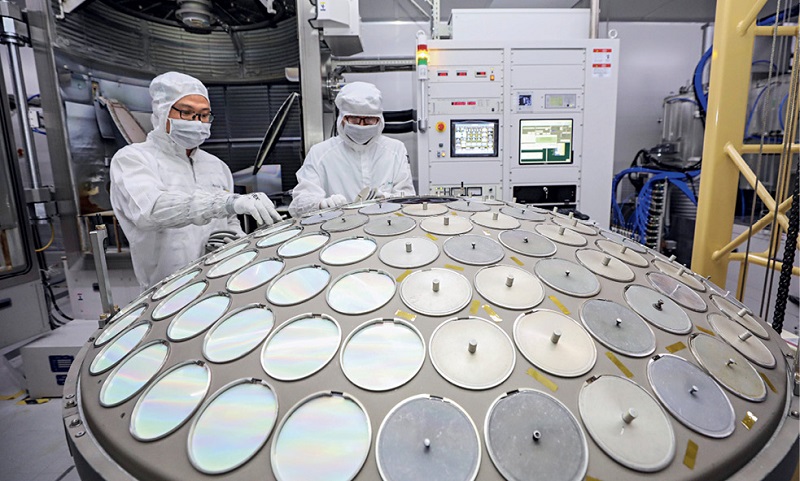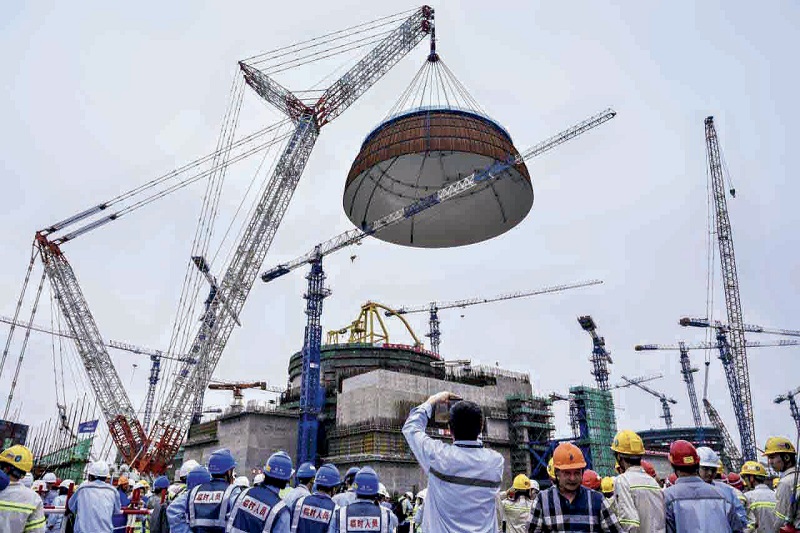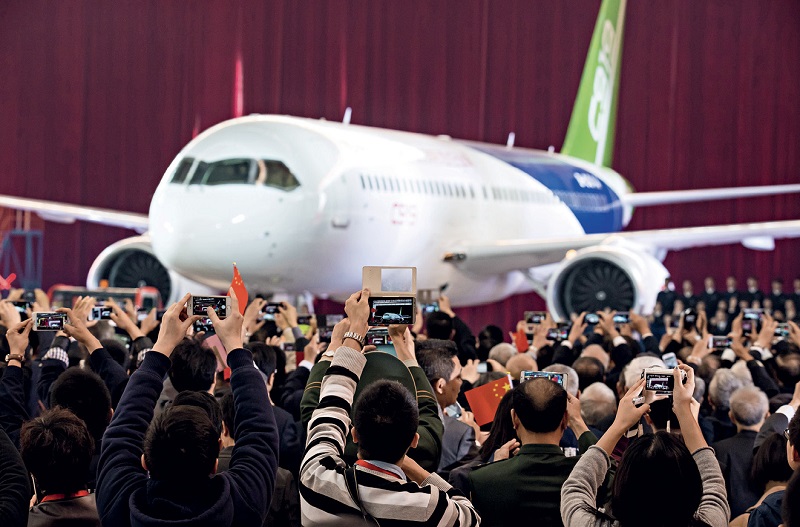
General Secretary of the CPC Central Committee Xi Jinping delivered a report to the 20th National Congress of the Communist Party of China (CPC) on October 16, in which he laid out an ambitious agenda for reaching the goal of transforming China into a modern socialist society in all respects by the middle of the century. The report was also a clear message to other nations of the world, in particular those in the West who have initially jumped on board the misbegotten campaign by the Biden administration to restrict China’s development in the area of high technology, that China would continue on its development path. Recent draconian restrictions on the sale or transfer of semiconductors to China from the U.S. or other nations under the thumb of the U.S. and the publication two days before the opening of the 20th CPC National Congress of the Biden administration’s National Security Strategy, which clearly treats China foremost as a rival rather than a partner, made clear U.S. intentions.
In his report, Xi was adamant that China will not be deterred by this rather clumsy and spiteful attempt to deprive China of its right to technological development. “We must develop our country and our nation with our own strength, and we must maintain a firm grasp on the future of China’s development and progress,” Xi said. He then underscored, “We must foster a firmer sense of purpose, fortitude, and self-belief in the whole Party and the Chinese people so that we cannot be swayed by fallacies, deterred by intimidation, or cowed by pressure.” He called on the Party members to “meet obstacles and difficulties head on, ensure both development and security, and dig deep to surmount the difficulties and challenges on the road ahead.” China’s continued reliance on the domestic market as the primary driver of growth in its new development paradigm of “dual circulation,” its emphasis on the pursuit of key breakthroughs in science and technology, and its determination to remain open to the outside world, provides the means for China to overcome these obstacles.
Xi made clear that there would be an upgrading of the mechanisms for advancing science in China. “We must regard science and technology as our primary productive force, talent as our primary resource, and innovation as our primary driver of growth,” Xi said. Technology is a result of human creativity and the subsequent application of that creativity in the productive process can greatly advance the progress of human society. Technological advances remain “secrets” only for a time until another creative mind discovers their origin. The speed of China’s development in science and technology may be temporarily slowed down by such restrictive measures, but will not be stopped.

The dome of No. 5 unit of the Fuqing Nuclear Power Plant of the China National Nuclear Corporation (CNNC), which is the world demonstration project of China’s first nuclear facility using Hualong One technology, is successfully put in place in Fujian Province’s Fuqing City at 5:58 p.m. on May 25, 2017.
In addition, many countries, including those the U.S. considers its “allies” are not as foolish as to follow the U.S. lead in its short-sighted policies. China remains the key economic driver in the world economy today and countries that wish to cut off access to China or treat it as a “rival” may only do damage to their own economic interests.
In addition, China intends to play a greater role in the international arena. In his report, Xi noted that the Belt and Road Initiative has been welcomed as a platform for development by many countries, noting that China thereby offers humanity a new choice for development. China strives to create new opportunities for the world with its own development and to contribute its share to building an open global economy that delivers greater benefits to all peoples, Xi said. China plays an active part in the reform and development of the global governance system. “China pursues a vision of global governance featuring shared growth through discussion and collaboration,” Xi pointed out.
Only when all countries pursue the cause of common good, live in harmony, and engage in cooperation for mutual benefit, will there be sustained prosperity and guaranteed security. It is in this spirit that China has put forward the Global Development Initiative and the Global Security Initiative, Xi noted. China “stands ready to work with the international community to put these two initiatives into action,” he said.
Much of the report also focused on the key role of the CPC in the country’s development and the need to advance the Party’s self-reform so that the dedication to the people’s welfare is always foremost on the minds of Party members. He also underlined the need to advance whole-process people’s democracy so as to further enhance the participation of all citizens in the country’s policymaking and governance.

The C919, China’s first self-developed trunk jetliner, at its debut in Shanghai on November 2, 2015.
Xi also put an emphasis on the need to build the People’s Liberation Army with world-class standards. “We will continue integrated development of the military through mechanization, informatization, and the application of smart technologies and work faster to modernize military theory, organizational forms, personnel, and weaponry and equipment.” Many pundits in the West are no doubt going to jump on these comments as signs of a more “aggressive” China. But given the increasingly hostile gestures from the U.S. and some of its closest allies with regard to China, coupled with the attempt to build something in the Asia-Pacific, like the Quad, which could easily be transformed into a military alliance, no Party leader could do any less than attempt to maintain a heightened capability and vigilance with regard to threats against one’s territorial integrity. A country the size of China with economic interests that straddle the globe has also a duty to maintain a capability to meet any possible threat to itself or its interests. Regarding Taiwan, Xi said that the country continued to focus on peaceful reunification with “the greatest sincerity and the utmost effort,” but at the same time said that China “will never promise to renounce the use of force.”
The report clearly underlined the intention of the CPC under Xi’s leadership to establish a more just and equitable world order. “China stands firmly against all forms of hegemonism and power politics, the Cold War mentality, interference in other countries’ internal affairs, and double standards,” Xi said. “It is committed to promoting a new type of international relations, deepening and expanding global partnerships based on equality, openness and cooperation, and broadening the convergence of interests with other countries.” This stands in stark contrast to the world vision expressed by the Biden administration whose aim is clearly to isolate countries like China and Russia, who have not pandered to U.S. delusions of remaining the sole “rule-maker” in the world. While the U.S. has its usual gaggle of “supporters” joining in their campaign, it is clear that most countries of the world are leaning in the direction that the Chinese president has clearly laid out. This more than anything gives one confidence that the future will move in the direction of that community of shared future for mankind so dearly espoused by the Chinese president. 
WILLIAM JONES is the former White House correspondent for EIR News Service and a non-resident fellow of the Chongyang Institute for Financial Studies at Renmin University of China.